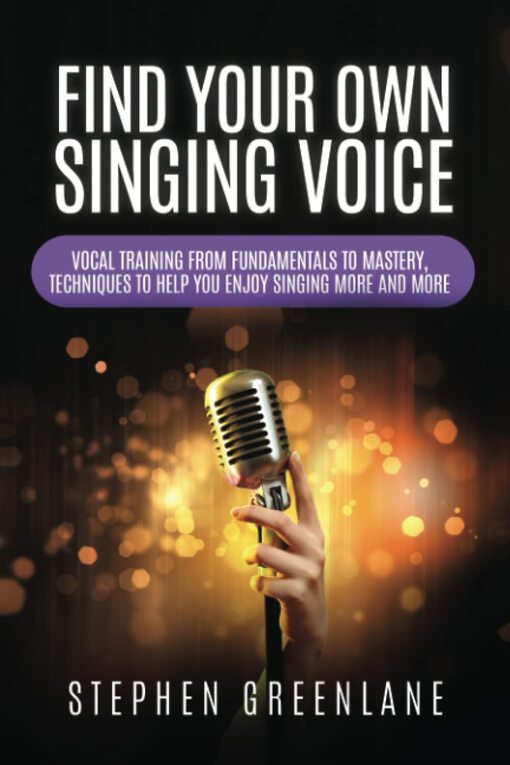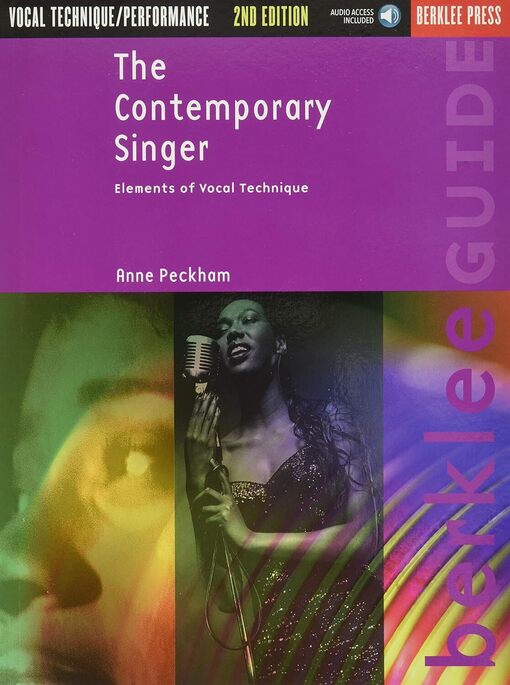Why do I cry when I sing? Reasons and best tips to control it

This post contains affiliate links. If you use these links to buy something we may earn a commission. Thanks.
Table of content
Why do I cry when I sing? Reasons and best tips to control it - Introduction
If you are practicing and you notice that you are beginning to cry when singing, you may want to focus on this blog post, especially if you are getting ready to perform.
On the one hand, if you cry while singing, you may express your feelings via your voice, which is a huge benefit.
On the other side, it will unquestionably be a bad thing for your music brand if you cry so hard that it starts to affect your performance and voice.
This article will address the various reasons why singing to music might make you cry and the best ways to overcome crying while singing. Let’s start.
KEY TAKEAWAYS
Singers may cry while singing due to various reasons including their approach to performance, excess effort put into a performance, emotional lyrics, facial muscle contraction, their emotional state, or memories triggered by the song.
Crying can add emotional depth to a performance, but if it becomes excessive, it can affect the quality of the voice and overall performance.
Strategies to control crying while singing include practicing songs that might trigger emotions, focusing on healing negative emotions, taking regular breaks, relaxing on stage, and regular meditation.
It is suggested that singers can use tools like CalypsoRoom to practice managing their emotions while singing, by sharing the experience with friends in a virtual listening room.
Despite the challenges, the article concludes that crying while singing is generally fine and can enhance the emotional connection with the audience. However, if it becomes problematic, the suggested strategies can be helpful in managing this.
What makes me cry when I sing?
Why does singing make me cry? It is a question you can ask if you are singing a ballad or have been singing for a while and find yourself getting teary-eyed.

Although there are a few physiological explanations for why you could be crying while singing, the most likely cause is an emotional one. The top reasons why singing might make you cry are listed below.
An approach to performance
Many well-known artists have probably shed a tear or two while on stage at some point in their careers. It's possible that this is sincere passion, but it might also be a stage trick.
The audience will get more involved and trust the sincerity the singer is trying to convey when they can perceive the performer's feelings, and this definitely helps his or her development of a music legacy.
Crying when singing or performing does not always indicate that the performer is feeling down. When they are overwhelmed, upset, or feeling pleased, many people might start crying.
Tears can be brought on by a wide range of emotions.

Putting in excessive effort
Every artist aspires to give a memorable and well-received performance in addition to performing the song musically correctly.
To be able to connect with their audience and convey the message the song is attempting to convey, many performers wish to demonstrate their enthusiasm for the music, the audience, and the theme of the song.
As a result, performers may overextend themselves and cry, which is not always beneficial. For many singers, crying won't enhance performance since it will lower the quality of their voice at that particular moment.
The lyrics might stir up feelings
Understanding the words may be necessary if you're singing an emotional song in order to do it successfully. The words may make you feel upset if they relate to you or depict a bad event you've experienced in the past.
Even if the song's lyrics don't deal with very serious subjects, lyrics always have a tendency to center on subjects that the writer is enthusiastic about.
Passion is an emotion that may literally cause happy or sad tears to fall, and it has a significant impact on your emotions.

Caused by the facial muscles contracting
One of the reasons you cry when singing is that your facial muscles are being used, and some of them will push on your lacrimal glands, causing them to produce a few tears.
The same reason you occasionally cry while yawning is also the cause of this.
Because you are very emotional
Why you cry when singing is largely influenced by your personality.
Some people are more emotional than others, and they frequently cry for no apparent reason; this does not indicate that they are inevitably sad or joyful; rather, it is just their body's reaction to specific situations.
Due to memories
A person's emotions can be evoked by memories, ranging from pure bliss to total agony and grief. Some songs are very good at achieving this, and if you sing them, chances are good that you'll start crying while you do.

Songs that evoke memories are great for helping the listener feel those emotions, whether the recollections are personal or relate to a well-known historical event.
How to stop crying while singing
You may need to learn how to stop crying when you sing if you notice that crying has a bad impact on your vocal performance and you have less control over it.
When you cry while singing, your diction may suffer, and your words may seem sloppy.

Here is a list of strategies you may use to prevent crying when singing.
Practice singing songs that might make you cry
When it comes to performing these songs live, practicing songs that make you cry or trigger you will be extremely beneficial to connect with people.
If you practice a song often, you will probably feel more confident when singing the words and be able to maintain your composure when giving a vocal performance.

The ability to manage your emotions while singing may be achieved by using CalypsoRoom with another person.
If you and a buddy aren't in the same physical place, you may still listen to music together by setting up a virtual listening room using CalypsoRoom.
This can offer a feeling of connection and support, which can be comforting and aid in emotion regulation.
Focus on healing negative emotions
Addressing negative emotions may improve how you feel on a daily basis and thus improve how you feel when singing.
Rest
It is acceptable to take brief, frequent breaks if you notice yourself becoming overwhelmed while singing in order to maintain your composure.
In a perfect scenario, you wouldn't want to pause your performance, but you can warm up by doing breathing exercises in between songs, and you can even take a little break.

Try to relax while on stage
Sometimes our nerves get the better of us, so it is quite possible that you may experience some anxiety when doing a performance in front of an audience. You'll be able to maintain emotional control if you can control this performance anxiety.
Although there isn't a quick treatment for performance anxiety, using calming techniques on a regular basis may make you feel more in control. Exercises in breathing or mental retraining may be included in these relaxing strategies.
Meditation
By meditating regularly, you may learn to manage your emotions and develop a stronger connection to both your body and your emotions.
The problem is that many individuals suppress their emotions until they finally lose control over when and how they come out.

Essential tools for singers and speakers
Enhance your vocal health and performance with the Clear Vocal Tubes for Speech Therapy and Singing.
These medical-grade silicone tubes, specially designed for water-resistant voice therapy and singing training, are an essential tool for singers, public speakers, and anyone whose profession relies on their voice.
Packaged with a convenient satin carry bag, cleaning brush, and instructional materials, these tubes offer a practical solution for vocal habilitation, therapy, and rehabilitation.

Unlock your vocal potential with the innovative Sing Ring Vocal Training & Therapy Tool, a must-have for singers, speakers, and anyone relying heavily on their voice.
This unique tool is designed to relieve vocal strain, smooth over breaks, and fortify your voice, making it an indispensable asset for vocal health.
It's crafted with solid brass and offers four resistance levels, enabling personalized training and quick warm-ups.
With its compact size and included zippered carrying case, the Sing Ring is the perfect companion for on-the-go vocal exercises.

Elevate your vocal practice sessions with the BELTBOX Vocal Dampener, a revolutionary tool designed for singers, actors, and performers seeking a discreet way to warm up or relieve stress without disturbing those around them.
This portable warm-up room reduces sound by up to 30 dB, allowing full voice practice in any setting.
Crafted from high-grade silicone and polyurethane foam, it is waterproof for easy cleaning and versatile use, even in the shower.
The BELTBOX comes with a removable strap for hands-free use, making it perfect for multitasking performers.

Elevate your recording quality with the Snap Studio Vocal Booth, a revolutionary solution recommended by Rolling Stone Magazine for artists seeking studio-quality sound at home or on the go.
This portable vocal booth, designed for singers, podcasters, voiceover artists, and rappers, promises crisp, dry, echo-free vocals, transforming any space into a professional recording environment.
Its high-quality Pro Sound insulation blankets are up to 75% heavier than competitors, efficiently absorbing reverb for unparalleled clarity in your recordings.
The booth includes wireless LED lighting, a phone/tablet holder, and a lightweight frame, all packed into a convenient travel bag for effortless mobility.

From fundamentals to advanced techniques: recommended books
Unlock the full potential of your voice with "Find Your Own Singing Voice: Vocal Training from Fundamentals to Mastery" by Stephen Greenlane.
Whether you're a shower singer dreaming of the stage or a seasoned vocalist looking to refine your skills, this guide is your roadmap to vocal excellence.
Greenlane demystifies the art of singing with practical techniques and personal insights, making it accessible to singers of all levels.
Dive into this comprehensive guide and embark on a journey to discover, enhance, and enjoy your unique singing voice like never before.

Elevate Your Singing with "The Contemporary Singer - 2nd Edition" by Anne Peckham.
This comprehensive guide, enriched with online audio exercises, offers an unparalleled journey through the elements of vocal technique.
Designed for vocalists of all levels, from beginners to professionals, it covers everything from posture and breath management to diction and performance anxiety.
Whether you're looking to refine your skills or start from scratch, Peckham's expert guidance, rooted in Berklee's prestigious teaching methods, will transform your singing and empower you to reach new heights.

"Vocal Technique: A Guide to Finding Your Real Voice" by Dena Murray offers a transformative approach to singing, making it a must-have for anyone eager to enhance their vocal prowess.
This book, published by Musicians Institute Press, is designed to help vocalists stop the struggle of hitting high notes and instead, unlock their true potential through effortless singing.
Murray's method focuses on breathing naturally, improving your speaking voice, and developing a natural three-octave range without the constraints of holding, pushing, or squeezing.
With access to professionally recorded demonstrations and guided exercises online, readers are equipped with everything needed to practice technique alongside standard vocal pieces.

Why do I cry when I sing - Conclusion
Cry while singing is totally fine. As noted, there are a variety of reasons why you could cry while performing.
Doing so usually makes your singing more real and also enables your audience to connect with the words and the emotion behind them on a more personal level.
However, crying hysterically each time you perform could be excessive. It will make your performance fail badly.
If you experience this problem, try some of the suggestions above, and with time and effort you will become more adept at managing your tears.
If you liked this post and would want to read more tips for your music career and general information about the music industry, please visit our blog section.
You're here because you love music, so please try to listen to it together with your friends or strangers, at the same time, connected by webcam in CalypsoRoom.
In CalypsoRoom we believe music is the most powerful tool to bring people together, and for this reason, we developed an online music social network where you can connect with friends or strangers while listening to music simultaneously, connected via webcam.
Are you a music artist or label and do you want to give your music a further dimension?
If yes, consider to post it on CalypsoRoom: it’s free, you keep 100% of your copyright, you promote your music in a new way, and you get a new revenue stream!
Music will save us all,
CalypsoRoom Team
Frequently Asked Questions (FAQs)
Why do people cry when they sing?
People may cry while singing due to the deep emotional connection they have with the song. This could be a connection to the lyrics, the melody, or the specific memories that the song brings to mind. When these elements strike a chord within the individual, it can evoke a profound emotional response that can lead to tears.
Is crying while singing a normal response?
Yes, crying while singing is indeed a normal response. Music has a unique way of touching our emotions, and songs can resonate with our personal experiences or feelings deeply. When these emotions are particularly strong, it can lead to physical expressions like crying.
What are the reasons behind tears during singing?
There are various reasons why someone might shed tears while singing. One reason is emotional resonance, where the song may bring up intense emotions related to personal experiences or feelings. Another reason is emotional release, where singing acts as an outlet for emotions that have been suppressed, leading to tears. Physical strain can also lead to tears, as singing with high intensity or for long periods can strain the vocal cords and eyes. Lastly, empathy can also lead to tears when singers deeply understand and connect with the emotions being expressed in the song.
Can singing trigger emotional release?
Yes, singing can serve as a powerful trigger for emotional release. This is because singing is an expressive act that can tap into deep-seated feelings and emotions. Singing a song with personally meaningful lyrics or melody can unlock emotions that have been bottled up, providing a healthy outlet for their expression.
How can I control my emotions while singing?
Controlling emotions while singing involves practicing emotional awareness and self-regulation. This could mean understanding your emotional triggers, grounding yourself in the present moment, or using techniques such as deep breathing to manage emotional responses. With practice, you can learn to channel your emotions into your performance without being overwhelmed by them.
Are there any techniques to prevent crying while singing?
There are several techniques to help prevent crying while singing. Deep breathing exercises can help to regulate your emotional responses. Mindfulness can also help, as it involves staying present and focused, reducing the impact of emotional triggers. Emotional detachment, where you consciously choose to not let your feelings overwhelm you, can also be helpful. Lastly, physical relaxation exercises can help to reduce the physical strain that can lead to tears.
Does the choice of song impact the likelihood of crying?
Absolutely, the choice of song can significantly impact the likelihood of crying. Songs that hold a personal significance or that evoke strong emotions, perhaps through their lyrics or associated memories, are more likely to cause tears. It's not just about the song's content, but also about how that content resonates with the individual singer's experiences and emotions.
Can singing help in processing and expressing emotions?
Singing can be a very therapeutic activity, helping individuals to process and express their emotions. By singing, people can give voice to feelings that might be hard to express in words, which can aid in emotional processing. Singing can also provide a sense of release and relief from emotional stress.
Are there any physiological explanations for crying during singing?
From a physiological standpoint, crying during singing can be explained by the relief of emotional stress and the physical strain singing can impose. The act of crying releases endorphins, our body's natural painkiller, which can produce feelings of comfort. Singing intensely or for long periods can also strain the vocal cords and the muscles around the eyes, which can lead to tears.
back
Written by CalypsoRoom Editorial Team
The CalypsoRoom Editorial Team is a skilled and diverse group of writers, researchers, and industry specialists who have access to Calypso's data and information in order to give you broad knowledge about the music industry as well as helpful advice to help you manage your music and dancing career.
Updated March 2024
Company number: 681223
James's Walk 31, Dublin, Ireland
contact@calypsoroom.com
+353 (89) 435 8928




